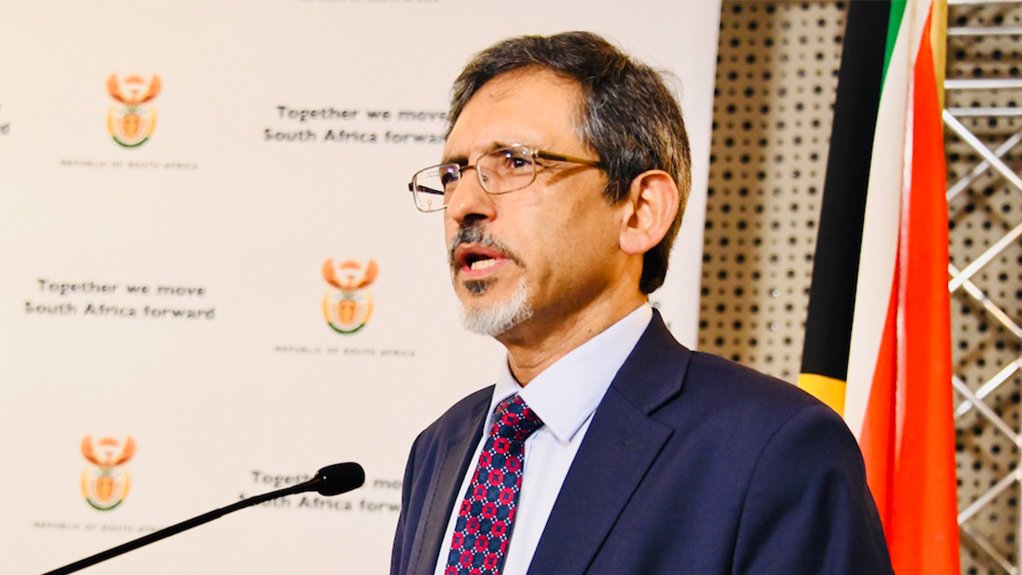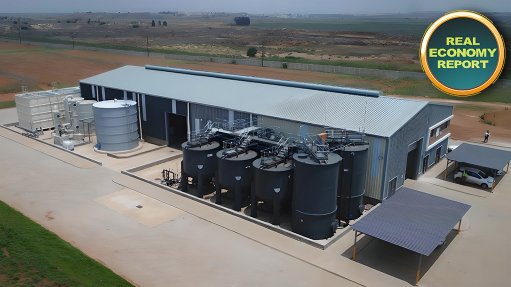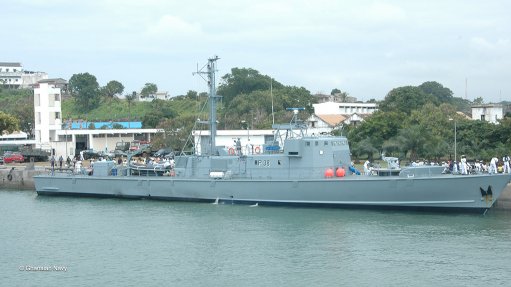Patel urges developers to register on dedicated Energy One-Stop Shop platform
Trade, Industry and Competition Minister Ebrahim Patel has launched the Energy One-Stop Shop (EOSS), as well as the Energy Resilience Fund (ERF), as part of efforts to streamline the process of renewable energy project development and to enable more investment.
The EOSS is aimed at fast-tracking energy projects, in line with government’s broader effort over the last few years to increase the supply of energy available to the grid.
Patel says the platform addresses a key constraint that energy developers face, which is the many regulatory and other approval measures that need to be complied with before a project can start being built or operated.
He reiterates his department’s commitment to fostering a resilient business environment and accelerating private sector investment in electricity generation to secure a stable energy future.
“While the Presidency is exploring ways to simplify these processes, we have seen that having a dedicated resource available to the private sector, to address blockages, has worked in other parts of the economy,” he adds.
The EOSS is being rolled out in four phases, the first of which has been completed and comprised personnel appointments, website design, the creation of a registration portal for energy projects and a mapping function showing where projects are in the approvals process.
The personnel have been appointed to unblock or fast-track applications for approvals.
Phase 2, which will start in coming months, comprises scoping provincial and municipal processes and building capacity at these government spheres.
The following phase will involve a single electronic application process being put in place, with greater automated feedback.
The last phase entails the full project being in place, covering both immediate blockages to project approvals, as well as a wider reform programme. Patel highlights the full time-saving benefits of a simplified approval process will be realised in this phase.
Department of Trade, Industry and Competition (DTIC) Investment South Africa head and deputy director-general Yunus Hoosen explains that multiple projects can be registered and tracked on the EOSS platform, with tracking information pertaining to technology type, province and stage of approval, among others.
He adds the platform allows for quicker query turnaround times, compared with conventional government engagement.
Project developers can register their projects and fast-track approvals at www.energyoss.gov.za.
Presidency project management office head Rudi Dicks says the EOSS lays the foundation for R200-billion worth of projects, totalling more than 10 000 MW, to become fully permitted and operational. The Presidency has more than 100 energy projects it is procuring that are in various stages of development.
In turn, Eskom interim CEO Calib Cassim comments that the EOSS will support the Energy Action Plan that was launched this time last year, and adds to the structural reforms that government has been undertaking to enable a more affordable and sustainable energy system.
Energy Council of South Africa CEO James Mackay believes the EOSS will help clarify the rapidly changing policy landscape. “South Africa is reshaping the regulatory landscape to facilitate the energy transition to distributed, decentralised and traded energy. The EOSS will play a significant role in developing this evolving landscape,” he adds.
Patel implores energy developers to use the EOSS facility and provide feedback to the team on both technology and human resources, so that the DTIC can improve the facility and enable more power to homes, factories, mines, offices and indeed all the economic hubs that create jobs in the country.
FUNDING AVAILABLE
Patel also launched the ERF, to which the DTIC has contributed an initial R200-million, for the Industrial Development Corporation (IDC) and the National Empowerment Fund (NEF), as partners of the fund, to facilitate localisation.
For example, IDC energy strategic business unit head Christo Fourie explains that the IDC has invited energy solution providers to deploy solutions to build and maintain embedded energy systems for small and medium-sized enterprises (SMEs), through funding between R25-million and R250-million provided by the IDC and the DTIC.
The IDC could also deploy funding directly to SMEs that prefer to own these solutions.
Fourie encourages SMEs to find more information on IDC’s funding options, including this new fund on the IDC’s website.
NEF strategic projects manager Andile Stemela confirms that the initial R200-million injection into the fund will be reviewed regularly to determine whether more funding is needed.
He adds that the NEF also offers its Alternative Energy Fund (AEF) as a financing solution for SMEs, which has the benefit of repayment only starting after 12 months. The NEF has 40 projects in various stages of development under the AEF.
Some of the projects have tenures up to 84 months, which Stemela says can be offered for more companies if need be. The NEF requires businesses to be tax-compliant and registered legal entities, before they can access between R200 000 and R5-million worth of funding for energy projects.
The AEF loans also come with the added benefit of a 2% interest rate, which NEF believes is more affordable for SMEs than most other financing options. More information to this effect can be found on the NEF’s website.
*The speakers made their comments during a virtual launch event on July 27.
Comments
Press Office
Announcements
What's On
Subscribe to improve your user experience...
Option 1 (equivalent of R125 a month):
Receive a weekly copy of Creamer Media's Engineering News & Mining Weekly magazine
(print copy for those in South Africa and e-magazine for those outside of South Africa)
Receive daily email newsletters
Access to full search results
Access archive of magazine back copies
Access to Projects in Progress
Access to ONE Research Report of your choice in PDF format
Option 2 (equivalent of R375 a month):
All benefits from Option 1
PLUS
Access to Creamer Media's Research Channel Africa for ALL Research Reports, in PDF format, on various industrial and mining sectors
including Electricity; Water; Energy Transition; Hydrogen; Roads, Rail and Ports; Coal; Gold; Platinum; Battery Metals; etc.
Already a subscriber?
Forgotten your password?
Receive weekly copy of Creamer Media's Engineering News & Mining Weekly magazine (print copy for those in South Africa and e-magazine for those outside of South Africa)
➕
Recieve daily email newsletters
➕
Access to full search results
➕
Access archive of magazine back copies
➕
Access to Projects in Progress
➕
Access to ONE Research Report of your choice in PDF format
RESEARCH CHANNEL AFRICA
R4500 (equivalent of R375 a month)
SUBSCRIBEAll benefits from Option 1
➕
Access to Creamer Media's Research Channel Africa for ALL Research Reports on various industrial and mining sectors, in PDF format, including on:
Electricity
➕
Water
➕
Energy Transition
➕
Hydrogen
➕
Roads, Rail and Ports
➕
Coal
➕
Gold
➕
Platinum
➕
Battery Metals
➕
etc.
Receive all benefits from Option 1 or Option 2 delivered to numerous people at your company
➕
Multiple User names and Passwords for simultaneous log-ins
➕
Intranet integration access to all in your organisation





















